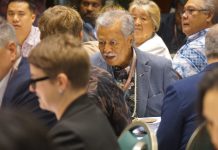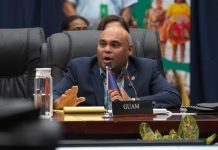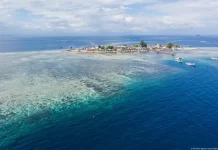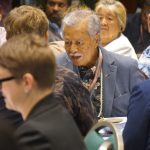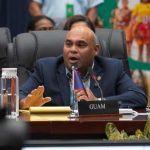An independent UN expert on Thursday called on the international community to fulfill its “urgent moral obligation” to support the Marshall Islands in addressing displacement challenges stemming from the impacts of historical nuclear testing and the growing threat of climate change.
The appeal from Paula Gaviria Betancur, UN Special Rapporteur on the human rights of internally displaced persons, comes as the Pacific nation grapples with generational displacement and the threat posed by rising sea levels and unprecedented global heating.
The Marshall Islands, a frontline nation in the fight to slow global warming, faces unique challenges.
As one of the small island developing States (SIDS), it has played a significant role in international climate action. Under the Paris Agreement of 2015, the Marshall Islands was instrumental, along with other SIDS, in advocating strongly for the inclusion of the 1.5 C temperature goal.
The nation also submitted one of the first Nationally Determined Contributions (NDCS) under the agreement.
The UN Framework Convention on Climate Change (UNFCCC) identifies the Marshall Islands as particularly vulnerable to climate change impacts, with rising sea levels posing an existential threat.
Despite these challenges, the agreement on ‘Loss and Damage funding’ at COP27, marks a critical development for vulnerable nations like the Marshall Islands. This mechanism aims to provide financial assistance to the most vulnerable nations impacted by climate change effects.
Beyond environmental challenges, research conducted by the UN human rights office, OHCHR, revealed that 67 nuclear tests performed between 1946 and 1958 by the United States Government in the Marshall Islands left communities displaced and contributed to radioactive land and sea pollution.
“Legacies of nuclear testing and military land requisitions by a foreign power have displaced hundreds of Marshallese for generations,” while the adverse effects of climate change threaten to displace thousands more,” said Gaviria Betancur, following her 10-day visit to the country.
The UN Human Rights Council-appointed expert who receives no salary and represents no government or organisation, welcomed Marshall Islanders’ efforts to seek remedy and solutions for displaced persons while emphasising that the “situation has been largely driven beyond the country’s control”.
During her visit, Gaviria Betancur emphasised the profound impact of displacement on Marshallese communities.
“Many Marshallese I spoke with recounted the profound sense of dislocation they feel as a result of their displacement from lands deeply intertwined with their sense of culture and identity as Indigenous Peoples,” she reported.
She congratulated the Marshall Islands on its recent election to the Human Rights Council and its introduction of a resolution addressing the human rights implications of the nuclear legacy.
She also outlined specific recommendations for the government, stating, “the Government should adopt a comprehensive, rights-based policy on displacement, promote greater transparency around laws and policies relevant to displaced persons and continue working with traditional leaders”.
Addressing historical responsibility, the expert noted that displacement occurred while the Marshall Islands were under U.S administration as a Strategic Trust Territory of the United Nations.
She urged the United States to provide complete information about the displacement and health risks to affected communities, ensure meaningful remedy, and seek full consent from those with traditional rights to lands it currently occupies for military purposes.
“While current compensation agreements may have been put in place after independence, these aims to codify displacement that took place when those displaced could not reasonably have provide free, prior and informed consent in line with Indigenous Peoples’ right to self-determination,” she stated.
Gaviria Betancur called on the international community to provide more support for the Marshall Islands’ climate change mitigation and adaptation measures, highlighting the countries minimal contribution to global emissions.


